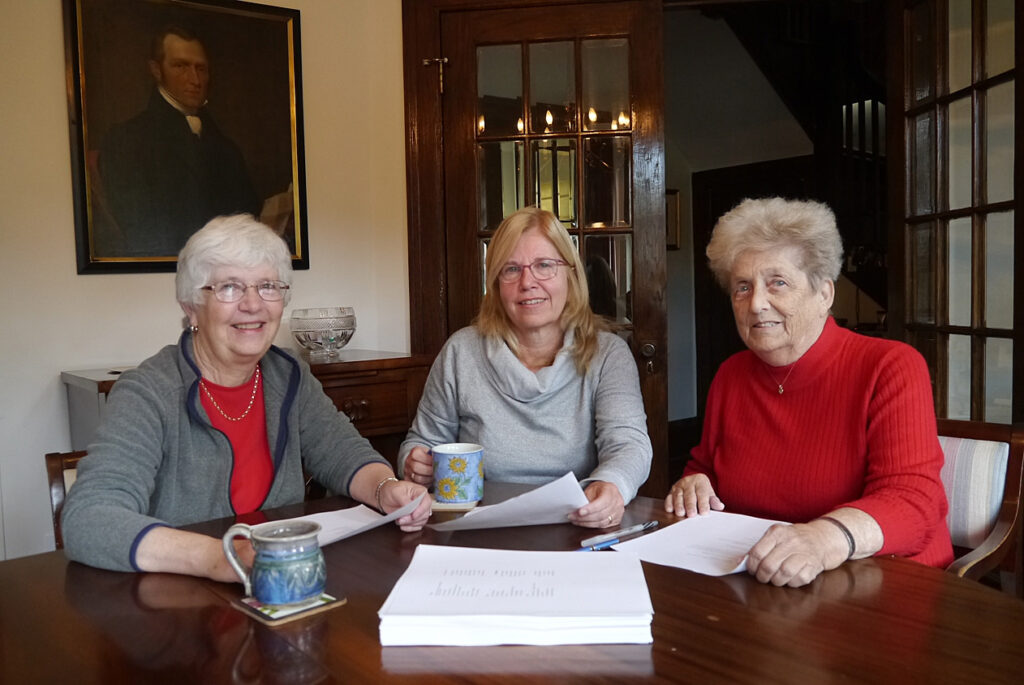If you have been watching the miniseries “Alias Grace” on CBC television or Netflix, you may remember a scene featuring a grey-haired gentleman with long sideburns. That character was based on the real-life physician Dr. Joseph Workman, known as the Father of Canadian Psychiatry.
The television show is based on the book of the same name by Margaret Atwood, a fictionalized account of the life of Grace Marks, an Irish-born servant girl convicted in 1843 of a double murder near Toronto. Grace was held at the Provincial Lunatic Asylum in Toronto at about the time that Dr. Workman became superintendent of the asylum.
Neither the book nor the television show makes it clear whether Grace was insane, or whether she was guilty of murder. There is little doubt, however, that Joseph Workman was a kind and intelligent man who made important contributions to the treatment of mental illness. In fact, he came from quite an extraordinary family.
Joseph (1805-1894) was born in Ballymacash, near Lisburn, County Antrim, Ireland (now Northern Ireland). His parents were Joseph Workman Sr. (1759-1848) and Catherine Gowdie (1769-1872). Joseph Jr. was the fourth of nine children — eight boys and one girl. His only sister, Ann Workman (1809-1882), who married Montreal hardware merchant Henry Mulholland, was my direct ancestor.
The Workmans brought up their children to value hard work, education and Christian charity. Holding liberal views, they were members of the Non-subscribing Presbyterian Church of Ireland and they eventually became Unitarians.
The Workmans were not wealthy and they lived in a cozy cottage in the village, surrounded by fields and farmland. Joseph Sr. worked as a miller and as a teacher, then as land steward (manager) for a local landowner.
Joseph Jr. attended school around Lisburn and, after graduation, worked as a land surveyor for three years. In 1819, his oldest brother, Benjamin, immigrated to Montreal, where he became a teacher and newspaper publisher. Over the next 10 years, the Workman siblings, tired of the poverty, poor harvests and religious strife around them, all left Ireland for Canada. Joseph and his parents arrived in Montreal in 1829.
Joseph taught school and studied to become a doctor at the same time, obtaining a medical degree from McGill University in 1835. His thesis focused on the infectious nature of cholera (a radical idea at the time) after he watched the deadly disease sweep through the city in 1832 and 1834.
He married Elizabeth Wasnidge in 1835 and the couple eventually had 10 children, four of whom died young. In 1836, they moved to Toronto, where Joseph ran the Wasnidge family hardware business. For 10 years, he kept up his reading on medicine before finally leaving the business to concentrate on medicine. He built up a busy practice and taught at the Toronto School of Medicine.
He was appointed superintendent of the Provincial Lunatic Asylum in 1853 and remained there until 1882.
At first, Joseph knew little about mental illness, but it was easy to see that the asylum was filthy and overcrowded, and that the patients were neglected. He improved the institution’s efficiency and made sure the patients had good food and generous amounts of alcohol. His treatment approach focused on moral therapy: kindness, truthfulness, social entertainment and religious instruction. Although cure rates did not improve, he did make progress in the humane treatment of the mentally ill.
The Workman brothers all achieved success in Canada. Alexander Workman became mayor of Ottawa, William was a successful hardware merchant and mayor of Montreal, Thomas became a prosperous businessman, and Benjamin had several careers, including teaching and medicine. Joseph and Benjamin were instrumental in establishing the Unitarian Church in Toronto and Montreal.
But biographer Christine L.M. Johnston considered Joseph to be the greatest of them all “because he radically changed the whole field of psychiatry, and not just in Canada. He influenced as well American superintendents of Lunatic Asylums…. Like most pioneers, he did not claim to be totally original – he introduced the new ideas initiated in Europe. Yet he was constantly exploring new avenues on his own after that.” 1
This article is also posted on www.genealogyensemble.com
See also:
Janice Hamilton, “Henry Mulholland, Montreal Hardware Merchant,”Writing Up the Ancestors,March 17, 2016, https://www.writinguptheancestors.ca/2016/03/henry-mulholland-montreal-hardware.html
Footnotes:
- Christine Johnston. “The Irish Connection: Benjamin and Joseph and their Brothers and their Coats of Many Colours,” CUUHS Meeting, May 1982, Paper #4, p. 6.
Other sources:
Christine I. M. Johnston, The Father of Canadian Psychiatry: Joseph Workman, Victoria: The Ogden Press, 2000.
Thomas E. Brown, “Joseph Workman,” Dictionary of Canadian Biography, vol. 12, University of Toronto Press/Université Laval, 1990, http://www.biographi.ca/en/bio/workman_joseph_12E.html, accessed Oct. 23, 2017.
The Digger, One Family’s Journey from Ballymacash to Canada, Lisburn.com, http://lisburn.com/history/digger/Digger-2011/digger-19-08-2011.html, accessed Oct. 20, 2017.
There is an extensive database of the Workman family online called A Family Orchard: Leaves from the Workman Tree, http://freepages.misc.rootsweb.ancestry.com/~database/WORKMAN.htm

